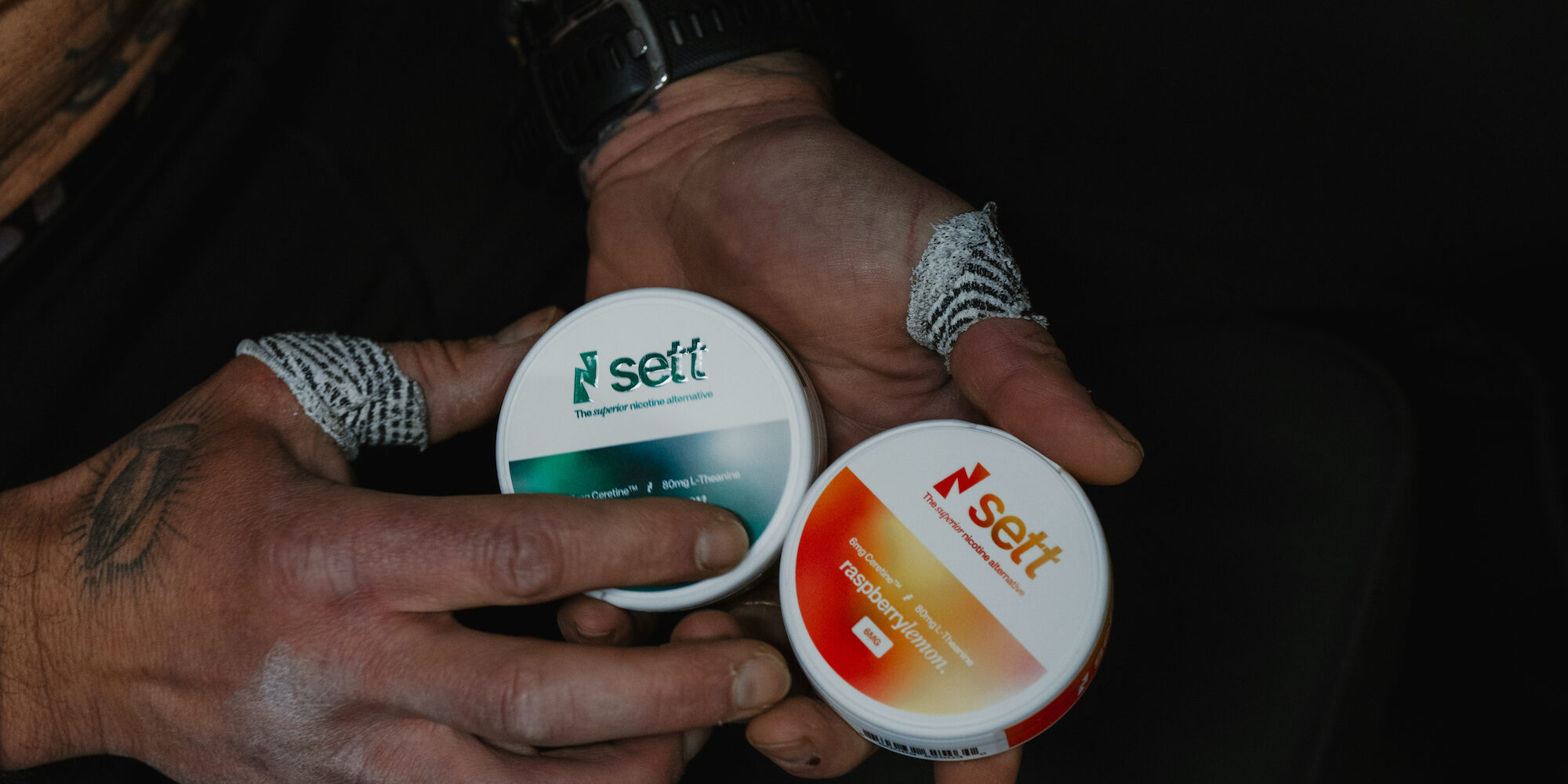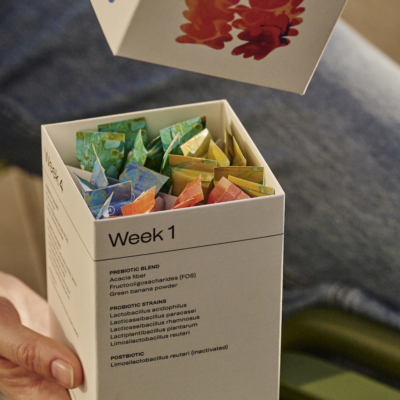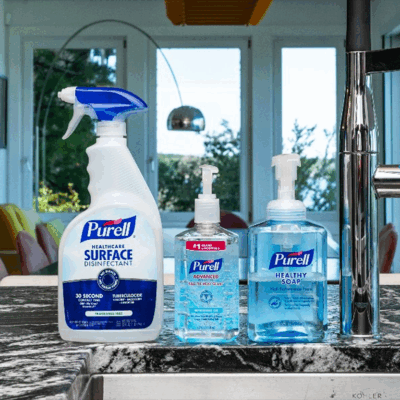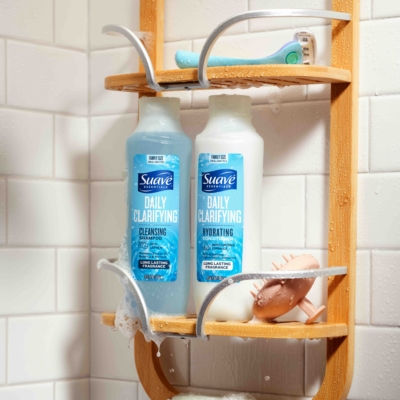
Productivity-Boosting Nicotine Alternative Sett Launches With $3.8M In Funding
Sett, a new entrant in the buzzy nicotine alternative category, has launched with $3.8 million in funding.
The brand’s backers are venture capital firms Jazz Venture Partners, where Sett co-founder and CEO Matt Wan is a principal, OpenSky Ventures and Break Trail Ventures along with about 20 angel investors, including Jolie founder Ryan Babenzien and professional skateboarder and television personality Rob Dyrdek. Dyrdek was Wan’s co-founder in sports supplement brand Momentous. Yes To co-founder Ido Leffler is a venture partner at Jazz, and its portfolio contains Oura, Thrive Global, Outside, HerMD, Yumi and Form Bio.
Sett is starting in direct-to-consumer distribution with The Pouch, which the brand describes as supporting focus, energy and mood. Its formula features ceretine, caffeine, l-theanine, cellulose and water. The cellulose and water allow for the slow release of ceretine, the main nicotine replacement ingredient in the product. Turned to for stress, l-theanine has been shown to reduce withdrawal symptoms. In wintergreen, raspberry lemon and unflavored varieties, The Pouch is priced at $49.99 for a five-pack. Subscribers save 30%.
On its website, Sett says ceretine “is structurally similar, yet chemically distinct from nicotine.” Wan explains that Philip Morris originally developed ceretine in 1980 when the tobacco giant feared tobacco would be banned. When it wasn’t, Philip Morris shelved the synthetic compound. Derived from nicotinic acids, Wan elaborates that ceretine acts the same on nicotinic acetylcholine receptors as nicotine, providing sensations similar to nicotine, but it’s less likely to cause physical dependence.
He says, “Everybody we had try this product, myself included, said not only does this sort of give you the nicotine fix, but I feel better when I’m using this. I just don’t feel as anxious.”

Wan’s position at Jazz Venture Partners and personal experience with nicotine led to Sett. As an investor, he dug into the better-for-you nicotine pouch category for funding purposes and discovered that the United States requires the Food and Drug Administration to authorize nicotine products prior to selling them, hampering the development of novel nicotine goods. Modern nicotine replacement therapy brands Jones and Blip appeal to younger consumers through fresh branding and products in adjacent categories.
In the adjacent arena as well, Sett is entering the market at a moment when the popularity of oral tobacco products from brands such as Zyn, Velo, Lucy and Rogue has exploded. Horizon Grand View Research projects the global nicotine pouch industry will advance at a compound annual growth rate of 29.6% to reach roughly $25 billion by 2030. The nootropic benefits of nicotine, including fine motor skills, attention, memory and energy enhancement, have been hyped by biohacking bros like Andrew Huberman and Dave Asprey and are scoring converts, primarily gen Z and millennial men.
However, many existing or interested users are concerned about nicotine addiction. Count Wan among them. He started experimenting with nicotine after scientific advisors to Momentous educated him on it. Soon, Wan was hooked. While he generally enjoyed nicotine—his energy and focus were sharpened—the downside was a feeling of edginess.
“[Nicotine pouches] were certainly not formulated to be the ideal cognitive enhancing experience,” says Wan. “I thought, there’s a lot of consumers like me that are looking at this category not purely through a buzz-seeking lens, but through the lens of utility, trying to use these products like you would a cup of coffee or an energy drink.”
“I feel better when I’m using this. I just don’t feel as anxious.”
Gums, mints and transdermal patches are on Sett’s product roadmap. Two product types Wan vows that the brand won’t touch are combustible inhalants for health reasons and consumable foods because ceretine’s ability to be absorbed by the gut is unclear. He sees Sett next to Zyn at convenience stores, but also has greater freedom with non-nicotine products to enter other retail channels.
“We want to be a brand that you could imagine showing up at say a supplement store or a gym,” says Wan. “I don’t know for sure whether those types of places are going to get there on a product like this, but that’s what we’re trying to architect with the brand.”
As he builds Sett, Wan has stepped back at Jazz to a part-time role and has dialed back the time he spends vetting new investments. He says, “If at some point in the future that becomes untenable from a bandwidth perspective, we’ll figure out what to do with that.”
Even though he’s enmeshed in startup investing and previously fundraised for Momentous, which sold a significant minority stake to growth equity firm Humble Growth in 2024, two years after Wan left the brand, fundraising for Sett wasn’t a walk in the park in a competitive category where he acknowledges differentiation is difficult. He received two main responses: nos from people who wanted to avoid the category and sometimes expressed a moral objection to nicotine replacement products, and yeses from people who were gung-ho about the category and wondering how big a check they could write.
Wan says, “I’ve never experienced something like that, of somebody being like, oh my God, I have to be in this or, on the other side, saying, ‘I actually think you’re not a good person because of this.’”
Click here to learn more about Dealmaker Summit happening June 8 & 9 in New York.







Leave a Reply
You must be logged in to post a comment.